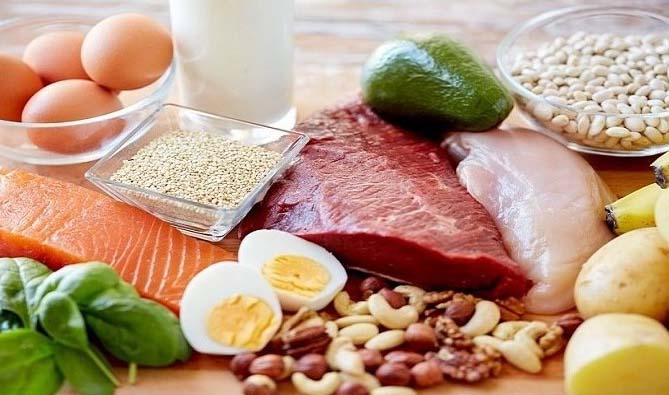High Fat Diets Including Certain Keto Programs, May Quietly Destroy Your Vision Over Time
Nikhil Prasad Fact checked by:Thailand Medical News Team Oct 19, 2025 3 months, 3 weeks, 5 days, 41 minutes ago
Medical News: Dangers Behind Fatty Foods
A team of researchers from the Medical University of Bialystok in Poland has issued a stark warning about the silent impact of high-fat diets on the eyes. Their extensive review shows that consuming too much fat, particularly saturated fat, does not only affect the heart and liver but also plays a critical role in damaging the retina, cornea, and other vital structures of the eye. Over time, this can lead to vision problems such as dry eyes, glaucoma, cataracts, and even age-related macular degeneration (AMD), one of the main causes of blindness worldwide.
 High Fat Diets Including Certain Keto Programs, May Quietly Destroy Your Vision Over Time
High Fat Diets Including Certain Keto Programs, May Quietly Destroy Your Vision Over Time
The research, conducted by Kamila Pięńczykowska, Anna Bryl, and Małgorzata Mrugacz from the Medical University of Bialystok, focused on the biological and metabolic effects of fat-rich foods on ocular tissues. According to this
Medical News report, the retina and retinal pigment epithelium (RPE)—both crucial for visual processing—are highly susceptible to lipid buildup and oxidative stress triggered by excessive fat intake.
How Fat Alters the Eyes at a Cellular Level
The study revealed that high-fat diets lead to cholesterol accumulation and impaired lipid metabolism within the retina, RPE, and blood vessels of the eye. This imbalance triggers inflammation, oxidative stress, and cell death, all of which damage the delicate tissue responsible for converting light into visual signals. Researchers also discovered that these fatty diets activate harmful molecular pathways, such as NF-κB and protein kinase C, resulting in chronic inflammation. Over time, this process weakens ocular blood flow and disrupts retinal cell communication.
Fatty acids, especially saturated ones, are key drivers of this process. They cause toxic compounds like ceramides to accumulate, increasing the risk of retinal degeneration. Meanwhile, the lack of omega-3 fatty acids—essential fats found in fish, nuts, and seeds—worsens inflammation and accelerates the degeneration of eye tissues.
Omega-3s Offer a Protective Shield
In contrast, omega-3 fatty acids such as EPA and DHA have shown protective properties. These nutrients help stabilize the tear film, regulate eye pressure, and provide neuroprotective benefits to retinal cells. Supplementation with omega-3s can reduce oxidative stress, improve meibomian gland function (which produces oils that prevent dry eyes), and enhance the corneal barrier. Clinical trials have also linked higher omega-3 intake to reduced risks of glaucoma and age-related macular degeneration.
Eye Diseases Linked to High-Fat Diets
The review connected high-fat diets with several major eye disorders:
-
Dry Eye Syndrome: High cholesterol levels and fat buildup in the tear glands cause inflammation and reduced tear production, leading to discomfort and blurry vision.
;
-
Myopia (Nearsightedness): Children with higher saturated fat intake show greater eye elongation, while omega-3 intake appears to slow myopia progression.
-
Cataracts: High levels of fat and cholesterol are associated with increased clouding of the lens, leading to vision loss.
-
Age-Related Macular Degeneration: Fat-induced oxidative stress damages the RPE, resulting in lipid deposits known as drusen, which can cause irreversible central vision loss.
-
Glaucoma: Excess fat consumption may increase intraocular pressure and damage the optic nerve, while omega-3s may help reduce eye pressure and protect nerve cells.
The Bigger Picture and What It Means for You
The findings emphasize that diets overloaded with saturated fats can harm more than just your waistline—they can also slowly degrade your vision. The study strongly advocates balancing fat intake, avoiding excessive animal fats, and consuming more foods rich in omega-3 fatty acids to maintain eye health.
In conclusion, high-fat diets disrupt the body’s delicate lipid balance, leading to chronic inflammation, oxidative stress, and eventual degeneration of eye structures. Moderation and the inclusion of omega-3-rich foods can help counteract these effects and preserve long-term vision health.
The study findings were published in the peer reviewed journal: Nutrients
https://www.mdpi.com/2072-6643/17/20/3271
For the latest on high fat diets, keep on logging to Thailand
Medical News.
Read Also:
https://www.thailandmedical.news/articles/diets-and-nutrition
https://www.thailandmedical.news/articles/ophthalmology-(eye-diseases)
https://www.thailandmedical.news/articles/glaucoma-news
